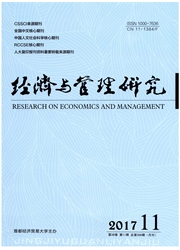

 中文摘要:
中文摘要:
本文利用“金砖五国”1608家商业银行1998-2012年的年度财务报表数据,从宏观经济层面与微观银行层面研究了新兴经济体的银行贷款受资本流入急停影响的差异性。研究表明,资本急停的发生在大多数情况下会导致一国商业银行信贷量的大幅下降,且该效应会受银行的资本背景与政策环境的制约。在特定条件下,平均资本充足率、流动性及外资银行在减弱资本急停对银行信贷的不利影响中起着重要的稳定作用。而在伴随着不同货币贬值程度的资本急停发生时,外资银行与流动性则发挥着更加显著的积极作用。
 英文摘要:
英文摘要:
This paper uses BRICs'1608 commercial banks'annual financial statement from 1998 to 2012,and analyses the differences of commercial bank lending in emerging countries affected by sudden stops in the view of macroscopic and bank level.The research shows that in most cases,sudden stops will lead to a sharp drop in the volume of commercial banks credit,which is restricted by banks'specific capital background and policy environment.In the particular case, average capital adequacy ratio,liquidity and foreign banks play an important role in weakening sudden stops'adverse effect on bank credit.Moreover,corresponding to the degree of the currency devaluation,foreign banks and liquidity play a more significant positive role.
 同期刊论文项目
同期刊论文项目
 同项目期刊论文
同项目期刊论文
 期刊信息
期刊信息
